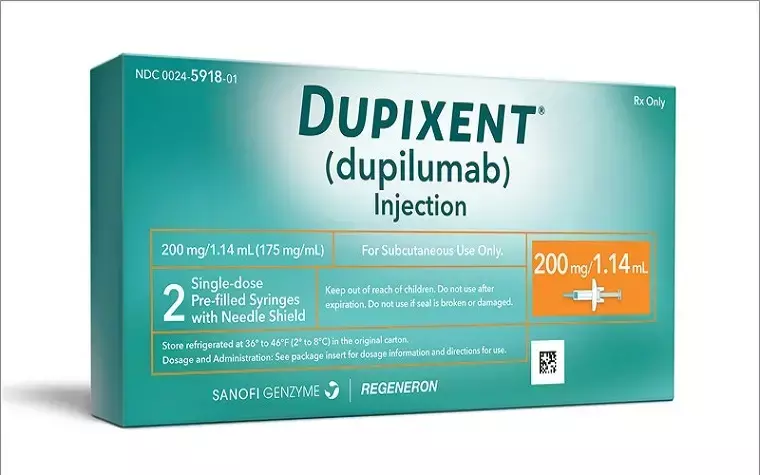- Home
- Medical news & Guidelines
- Anesthesiology
- Cardiology and CTVS
- Critical Care
- Dentistry
- Dermatology
- Diabetes and Endocrinology
- ENT
- Gastroenterology
- Medicine
- Nephrology
- Neurology
- Obstretics-Gynaecology
- Oncology
- Ophthalmology
- Orthopaedics
- Pediatrics-Neonatology
- Psychiatry
- Pulmonology
- Radiology
- Surgery
- Urology
- Laboratory Medicine
- Diet
- Nursing
- Paramedical
- Physiotherapy
- Health news
- Fact Check
- Bone Health Fact Check
- Brain Health Fact Check
- Cancer Related Fact Check
- Child Care Fact Check
- Dental and oral health fact check
- Diabetes and metabolic health fact check
- Diet and Nutrition Fact Check
- Eye and ENT Care Fact Check
- Fitness fact check
- Gut health fact check
- Heart health fact check
- Kidney health fact check
- Medical education fact check
- Men's health fact check
- Respiratory fact check
- Skin and hair care fact check
- Vaccine and Immunization fact check
- Women's health fact check
- AYUSH
- State News
- Andaman and Nicobar Islands
- Andhra Pradesh
- Arunachal Pradesh
- Assam
- Bihar
- Chandigarh
- Chattisgarh
- Dadra and Nagar Haveli
- Daman and Diu
- Delhi
- Goa
- Gujarat
- Haryana
- Himachal Pradesh
- Jammu & Kashmir
- Jharkhand
- Karnataka
- Kerala
- Ladakh
- Lakshadweep
- Madhya Pradesh
- Maharashtra
- Manipur
- Meghalaya
- Mizoram
- Nagaland
- Odisha
- Puducherry
- Punjab
- Rajasthan
- Sikkim
- Tamil Nadu
- Telangana
- Tripura
- Uttar Pradesh
- Uttrakhand
- West Bengal
- Medical Education
- Industry
Add on topical steroids to Dupilimab monotherapy fail to further improve outcomes in Atopic dermatitis

Addition of topical corticosteroids to Dupilimab does not further improve the outcomes in patients with moderate to severe Atopic Dermatitis, finds a study published in the Journal of the European Academy of Dermatology and Venerology.
Atopic dermatitis (AD) is a chronic inflammatory skin disease that can have a significant impact on patients' quality of life. The severity of AD can vary widely between patients, and it is important to understand how treatment responses may differ between patients with severe versus moderate AD.
The study included 1719 patients aged 12 years or older with moderate-to-severe AD from five randomized, double-blind, placebo-controlled trials. Patients were stratified by baseline Investigator's Global Assessment (IGA) score, with a score of 3 indicating moderate AD and a score of 4 indicating severe AD. Patients received subcutaneous placebo or dupilumab as monotherapy or with concomitant topical corticosteroids (TCS).
The results showed that dupilumab-treated patients with moderate AD had numerically higher absolute proportions of patients achieving IGA 0/1 (clear/almost clear) than those with severe AD. However, for all other endpoints assessed, no meaningful differences or consistent response patterns between moderate and severe subgroups were observed. This suggests that dupilumab with or without TCS demonstrated similar efficacy in patients with moderate or severe AD.
The findings of this study are important because they suggest that treatment responses may differ between patients with severe versus moderate AD. This information can be useful for clinicians when selecting treatment options for their patients. In addition, the study highlights the potential benefits of dupilumab as a treatment option for patients with moderate-to-severe AD, regardless of the severity of their condition.
Overall, this study provides valuable insights into the treatment of AD and underscores the importance of individualized treatment plans for patients with different levels of disease severity. It also highlights the need for further research to better understand the underlying mechanisms of AD and to identify new treatment options for this challenging condition.
Source:
Weidinger, S., Simpson, E. L., Silverberg, J. I., Schmitt, J., Leshem, Y. A., Katoh, N., Chen, Z., Zhang, H., Shumel, B., Bansal, A., Chao, J., Lu, Y., Rossi, A. B., & Abramova, A. (2023). Efficacy of dupilumab in moderate and severe atopic dermatitis. In JEADV Clinical Practice. Wiley. https://doi.org/10.1002/jvc2.100
Neuroscience Masters graduate
Jacinthlyn Sylvia, a Neuroscience Master's graduate from Chennai has worked extensively in deciphering the neurobiology of cognition and motor control in aging. She also has spread-out exposure to Neurosurgery from her Bachelor’s. She is currently involved in active Neuro-Oncology research. She is an upcoming neuroscientist with a fiery passion for writing. Her news cover at Medical Dialogues feature recent discoveries and updates from the healthcare and biomedical research fields. She can be reached at editorial@medicaldialogues.in
Dr Kamal Kant Kohli-MBBS, DTCD- a chest specialist with more than 30 years of practice and a flair for writing clinical articles, Dr Kamal Kant Kohli joined Medical Dialogues as a Chief Editor of Medical News. Besides writing articles, as an editor, he proofreads and verifies all the medical content published on Medical Dialogues including those coming from journals, studies,medical conferences,guidelines etc. Email: drkohli@medicaldialogues.in. Contact no. 011-43720751


